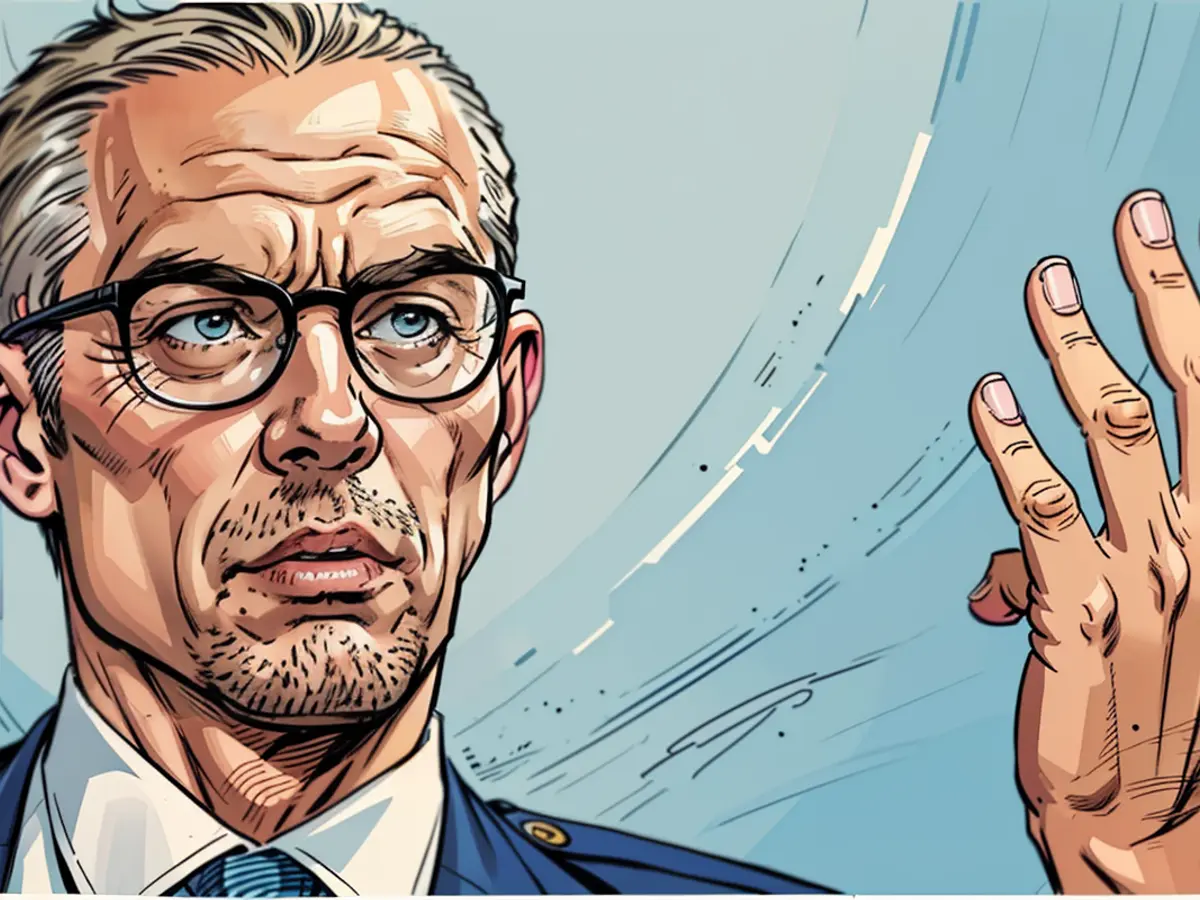- Merz proposes that Scholz should dissolve the coalition to achieve a more favorable migration agreement.
Following the lethal stabbing occasion, Merz, the opposition leader from CDU, proposes a joint adjustment in immigration policy to Chancellor Scholz from SPD, disregarding the coalition partners, Greens, and FDP. Merz expressed, "Should we manage to cooperate, Union and SPD, then we might not require either the FDP or Greens to execute necessary legal amendements."
Merz's proposition essentially implies a break-up of the coalition. The 2021 coalition agreement states: "In German Bundestag and its committees, the coalition factions will vote unanimously. This includes non-covered policies. Altering majorities is excluded."
In ethical matters like assisted dying, faction discipline is often suspended. However, in a significant political issue like migration policy, the Greens and FDP may not be inclined to agree.
Merz alluded to the Chancellor's guideline competence, emphasizing that the SPD and Union command 403 out of 733 Bundestag members, which grants them a clear majority in parliament. Merz clarified, "This is not a call to join a coalition. We have no intentions of joining the government." Nonetheless, prompt action is essential, eliminating all barriers. "Now Chancellor is losing control of his own country. He is losing trust."
Scholz did not respond to Merz's proposition, as stated by Merz. "He didn't express immediate agreement," Merz said. However, he anticipates a response "within a few days." The talks between two, Merz suggested, might commence "this afternoon," but "a day or two later is acceptable too."
Scholz: Cooperation: yes - but "not everywhere"
In a preliminary public reaction, Scholz welcomed the proposition for a meeting with the CDU leader at a campaign event in Thuringia yet expressed his disapproval for changing majorities for a migration accord. "Government and opposition must collaborate constantly," he said, but then added: "Not everywhere, but in unity."
Nevertheless, it is suitable "that the opposition leader in the German Bundestag also proposes cooperation" in curtailing irregular migration. However, Scholz referred to legal constraints: "Our international agreements apply. European Union rules apply. Our Basic Law rules apply. And then numerous practical recommendations are welcome."
Merz arrives with a tie - and departs without one
Scholz and Merz discussed for more than an hour in the morning at the Chancellery. Around 9 a.m., the chairman of the CDU/CSU parliamentary group arrived at the Chancellery, wearing a tie. Upon leaving the government headquarters around 10:15 a.m., the tie was absent. Merz clarified this by stating, "We conversed cordially with each other, and to protect my tie, I took it off."
Merz subsequently referred to a "wonderful atmosphere" during the conversation. He had already applied significant pressure beforehand. Under the caption "Enough is enough!", he advocated for a shift in immigration policy as early as Sunday and reiterated this at a campaign event in Dresden on Monday. "We desire nothing more and nothing less than the Federal Chancellor fulfilling his oath and safeguarding the German people."
Merz proposes migration commissioners from Union and government
In his meeting with Scholz, Merz suggested appointing commissioners from the government and the Union to scrutinize the legal opportunities for realigning immigration policy. For the Union faction, Merz proposes sending the parliamentary business manager Thorsten Frei (CDU) to the meeting.
Additionally, the faction leader made specific suggestions to bring changes in immigration policy into effect as early as the first week of the Bundestag session in mid-September. During the pertinent week, only the 2025 budget should be officially discussed, as per Merz's proposal. Half a day should be reserved to determine agreeable changes in immigration policy.
Concretely, the Union demands rejection of rejected asylum seekers to be sent back to Syria and Afghanistan, imposing immediate loss of any German residence status for refugees traveling from Germany to their homeland. Permanent checks at EU's external borders and additional powers for the Federal Police should be executed. Moreover, Merz brings up the declaration of a "national emergency" to bypass EU law and reject migrants who initially entered another EU country.
Scant chances for an informal grand coalition
However, the fundamental cooperation willingness might not translate into concrete outcomes, which will likely become apparent post-Saxony and Thuringia state elections this Sunday. If the attempt at cooperation fails, it would not be the first.
Scholz and Merz had already held talks on immigration in the previous year’s fall before a migration summit of the federal and state governments. However, the CDU/CSU faction leader was dissatisfied with the package of measures agreed upon by Scholz and the minister-presidents and rejected further cooperation. At that time, it was about creating a joint working group of government and Union for the control of immigration, which Scholz disapproved of. "With that, the migration agreement in Germany, in my opinion, is resolved," Merz stated at the beginning of November.
After Merz's proposal for a joint immigration policy adjustment, he might need to address the Greens and FDP, as they might not align with the SPD and CDU on migration policies due to their differing stances. The coalition agreement stipulates unanimous voting among coalition factions, which might pose a challenge.
In response to Merz's proposition, Scholz expressed his support for collaboration but ruled out altering majorities for a migration accord, indicating that cooperation would be limited to specific areas rather than a full-scale policy overhaul.








